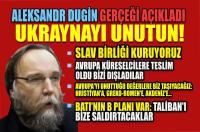ヌーマキアの紹介(講義7) キリスト教のロゴス
第7回目の講義は、キリスト教のロゴスについてです。そこで今度は、キリスト教とキリスト教の伝統について、短いノロジーの分析を行うことにします。これは決して教条的なものではありません。私たちはキリスト教を文化的、社会的、政治的、構造的、哲学的な現象としてとらえています。ですから、キリスト教を擁護したり非難したりすることはありません。私自身、ほとんどが正教徒だと思いますが、キリスト教を正しい方法で扱おうとしています。それは一種のNoologicalな分析です。真理とか異端とか、教義的に正しいとされたもの、異端とされたものを論じることはしないのです。これから話すことはすべてNoologicalな観点、構造的な分析から見ていきます。
戦争の形而上学
ヌーマキアの紹介(講義6)ヨーロッパ文明
ヌーマキアの紹介(講義5) ディオニュソスのロゴス
ヌーマキアの紹介(講義4)キュベレイのロゴス
インド・ヨーロッパ文化がどのようにして定住段階に至ったのか、そしてこのシフトとヌーマキアの瞬間のこの構造の変化の間に何が起こったのかをよりよく理解するためには、トゥランの周辺にあった存在的な地平が何であったかを考えなければならない。つまり、ツラン族は東ヨーロッパ、アナトリア、バルカン、イラン(ペルシャ)のエラムの領土、そしてインドの空間へとやってきたのである。そして、これらの空間は空っぽでもなんでもなかった。そこには別の文明があり、別の存在地平があり、別の種類の(あるいは同じかもしれないが、これからわかる)ヌーマキアの適切な瞬間があったのである。ヨーロッパ、バルカン、アナトリア、ペルシャ、インドなど、インド・ヨーロッパ以前の文明は何だったのだろうか。私は、第1回や前回の講義と同様、ここでも、インド・ヨーロッパ人が到来する以前のアナトリア、バルカン、ヨーロッパに、非常に古い大女神の文明が存在したとするマリヤ・ギンブタスの概念に従います。
ヌーマキアの紹介(第3講) 印欧語文明のロゴス
意識、人間の心、思考に関する哲学的学問である「ノロジー」に特化した講義を継続して行っています。今日は2つの講義があります。第3回目の講義は、「印欧語文明のロゴス」という名前が付いています。そこで今度は、前の2つの講義で説明した方法論を、具体的な対象、具体的な文明に適用していきます。これまで、3つのロゴス論と実存的な地平と歴史的なものの概念について話してきました。そこで、今度はそれを印欧語文化に適用してみることにします。まず実存的空間についてですが、この概念はさまざまなスケールに適用できます。小さな共同体、中規模の共同体、あるいは大きな共同体、たとえば同じ言語的起源を持つもの同士などです。そして、これから印欧語の実存的空間についてお話しします。印欧語の実存空間とは何でしょうか。それは最も大きな統合の形の一つです。印欧語的実存空間は、印欧語を話す人々が生活する空間と一致します。
ヌーマキアの紹介(講義2) - ジオソフィー
はじめに:ヌーマキアの目的と課題
ヌーマキアの紹介(講義1) ヌーマキアとは何か?
伝統的価値観のABC。パート1:伝統
「右翼グラムシアニズム」現象・「新しい右翼」の経験
Dugin's guideline: The Anthropological Problem in Eschatology
Dugin's guideline: The Anthropological Problem in Eschatology
In our time it is becoming increasingly clear that man himself, his very existence, is in question, and it is becoming increasingly clear that we are living in a critical, extremely critical moment in history, and it is possible (and even probable) that we are living in the end times.
Epidemics and wars are decimating millions of lives, in the SMO, the world has been brought to the brink of a nuclear war that, once started, could end humanity's existence.
ポストポリティクスvs.実存的ポリティクス
War and Chaos (Essays on the Metaphysics of War) - full version
The most thoughtful observers of the Ukrainian front note the peculiar nature of this war: the chaos factor has increased enormously. This applies to all sides of the Special Military Operation, both to the actions and strategies of the enemy and our command, as well as to the dramatically increased role of technology (all kinds of drones and UAVs), and the intensive online information support, where it is almost impossible to distinguish the fictitious from the real. This is a war of chaos. It is time to revisit this fundamental concept.
アレクサンドル・ドゥーギン: ウクライナは「最初の多極」紛争である
Le concept du sujet pauvre
Un trait caractéristique de la philosophie russe, selon certains historiens de la philosophie russe, est l'ontologisme de la pensée. La position de l'ontologisme en philosophie, contrairement à la position opposée du gnoséologisme, implique la considération primordiale non pas du processus de la pensée, mais de l'objet de la compréhension. Étant du côté de l'ontologique, nous cherchons avant tout à identifier et à répondre à la question : "QUOI est, QUOI est l'objet de notre connaissance, QUOI est le centre de notre intuition intellectuelle".
Dugin: Rusya liberal nazizmin tek kutuplu dünya düzenine isyan etti!
Aleksandr Dugin'den zehir zemberek yazı: Ukraynayı unutun!
Rus milliyetçi entelektüellerin yeni internet sitesi zavtra.ru'daki son yazısında Aleksandr Dugin, Rusya'nın Ukrayna üzerindeki niyetlerini tüm çıplaklığıyla açıkladı. Dugin'i göre artık Ukrayna Doğu Slav Birliği'nden ayrılamayacak.... Batının B planı terörizm... Afganistan'dan ABD'nin ayrılması Taliban'ı güçlendirip bize güneyden saldırtmak için!..
El segundo mundo, la semiperiferia y la civilización-estado en la teoría del mundo multipolar
Para comprender la transformación del orden mundial que está aconteciendo ante nuestros ojos, sobre todo el proceso de cambio de un modelo unipolar (globalista) a uno multipolar, es necesario recurrir a diversas ideas y conceptos que permiten realizar una explicación coherente de la misma. He propuesto mi propia visión del asunto en libros como Teoría del mundo multipolar y La Geopolítica del mundo multipolar, pero estas son solo aproximaciones a un tema bastante complicado. En este artículo quiero desarrollar tres conceptos que pueden ayudarnos a comprender mucho mejor el proceso de transición que está teniendo lugar en las Relaciones Internacionales. Creo que estos conceptos explican las tendencias, conflictos y problemas que se producen actualmente, como, por ejemplo, los conflictos en Ucrania, Taiwán y otras partes del mundo. Solo comprenderemos lo que está sucediendo ahora si entendemos las razones detrás de esta transición, lo cual requiere de una contraparte conceptual. Los tres conceptos que vamos a abordar hacen parte de una explicación de este asunto.
Second world, semi-periphery and state civilisation in a multipolar world theory. Part Three.
We come to a third concept, crucial for understanding the transition from a unipolar to a multipolar world and the place of the BRICS countries in this process. We are talking about the concept of the civilisation-state. This idea has been formulated by Chinese scholars (in particular by Professor Zhang Weiwei) and most often the concept of the civilisation-state is applied to modern China and then by analogy to Russia, India, etc. In the Russian context, a similar theory was put forward by the Eurasians, who proposed the concept of the Peace-State. Actually, in that trend, Russia was understood as a civilisation, not just one of the countries, hence the main Eurasian concept - Russia-Eurasia.
Second World, Semiperiphery and State-Civilisation in Multipolar World Theory [Part Two]
Let us now turn to a different theory: the 'world-system analysis' constructed by Immanuel Wallerstein. Wallerstein, an exponent of the Marxist school of International Relations (especially in its Trotskyist interpretation), on the basis of the doctrine of "the long run" (F. Braudel) and the Latin American theorists of structural economics (R. Prebisch, S. Furtado), developed a model of world zoning according to the level of development of capitalism. This view represents a development of Vladimir Lenin's ideas on imperialism as the highest stage of development of capitalism, according to which the capitalist system naturally gravitates towards globalisation and the spread of its influence over all humanity. Colonial wars between the developed powers are only the initial stage. Capitalism is gradually realising the unity of its supranational goals and forming the core of world government. This is fully consistent with liberal International Relations theory, where the phenomenon of 'imperialism', critically understood by Marxists, is described in apologetic terms as the goal of a 'global society', the One World.
The “Right-Wing Gramscianism” Phenomenon: The Experience of the “New Right”
The “New Right” is an ensemble of intellectual movements that appeared in 1968 as a reaction to ideological crisis and the strengthening of liberal hegemony in Europe. By 1968, the classical “rightwing” movements were riddled with liberal ideological motives, such as the adoption of capitalism, pro-American sentiments, and statism. In turn, the “left-wing” agenda, the core of which was constituted by opposition to capitalism [1], was also affected by liberal influences. Egalitarianism, individualism, the negation of differences between cultures, and universalism were rendering “left-wing” movements allies and partners of the liberal doctrine.
A reviravolta eurasiática da Rússia
A Rússia é um país enorme que abrange todo um continente e, portanto, é muito difícil mudar sua dinâmica por causa de sua inércia. Entretanto, seria absurdo permitir que esta inércia nos conduzisse ao abismo. É por isso que as reformas (e outras emendas que precisam ser feitas) são muito difíceis de serem feitas.

























